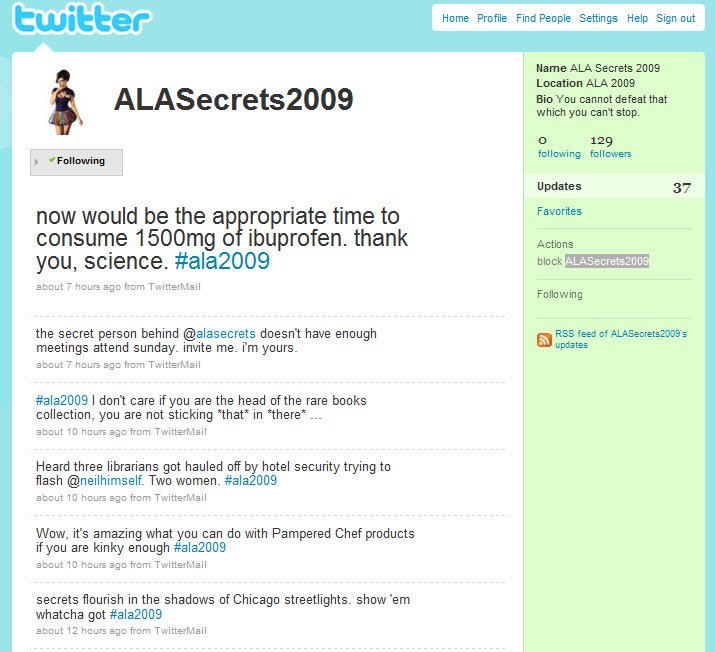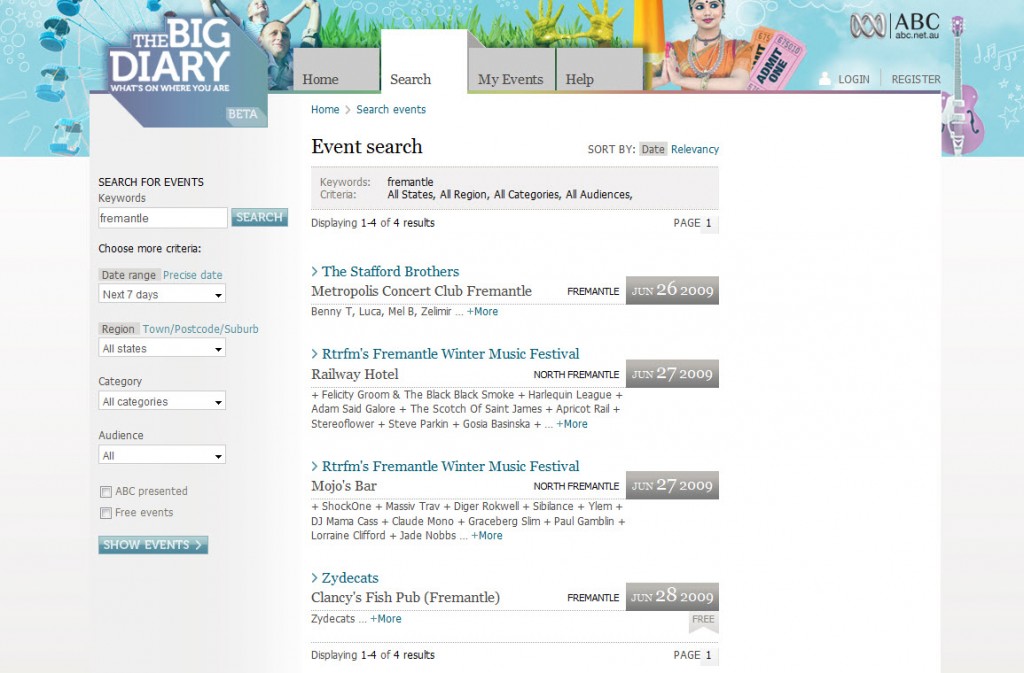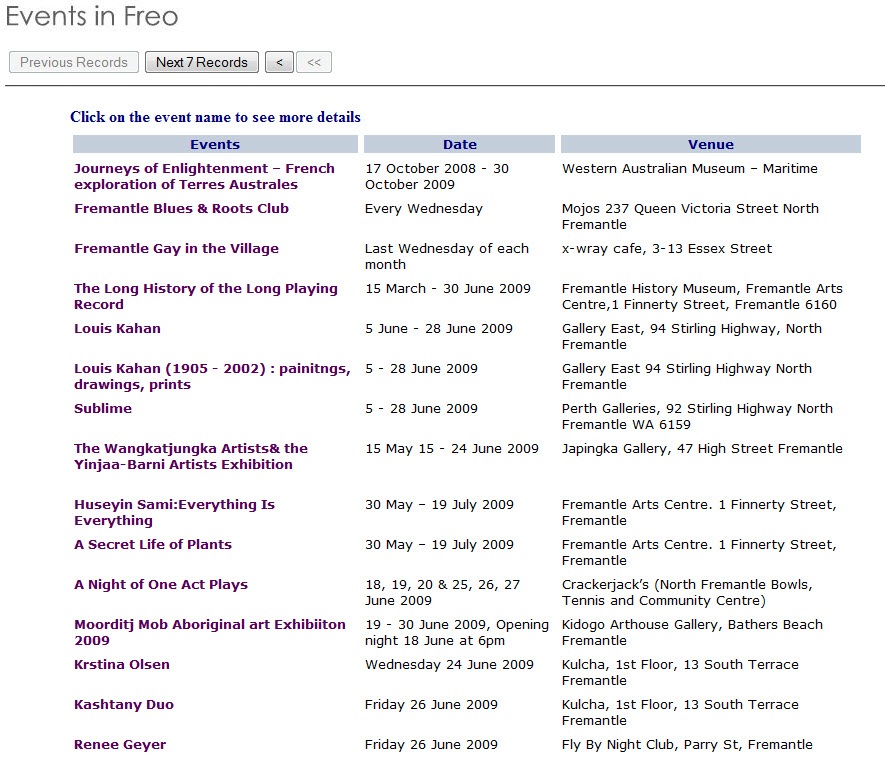The Cluetrain Manifesto turns ten this year. The 95 Theses are still relevant today.
I’ve been thinking about Cluetrain and how professional library associations should – or can- cope with the multiplicity of tools and fora discussing what they are doing.
I wonder whether the authors of the Cluetrain Manifesto would have thought that 10 years later organisations – and many of us individuals – would be looking at the changes to media and communication and scratching our heads saying “What happened, how did it get so fast and how do we use it now? “. Here are a few of the Cluetrain theses that I think are most relevant:
3. Conversations among human beings sound human. They are conducted in a human voice.
4. Whether delivering information, opinions, perspectives, dissenting arguments or humorous asides, the human voice is typically open, natural, uncontrived.
5 .People recognize each other as such from the sound of this voice.
6 .The Internet is enabling conversations among human beings that were simply not possible in the era of mass media.
…..
38. Human communities are based on discourse—on human speech about human concerns.
39. The community of discourse is the market.
40. Companies that do not belong to a community of discourse will die.
41. Companies make a religion of security, but this is largely a red herring. Most are protecting less against competitors than against their own market and workforce.
….
64. We want access to your corporate information, to your plans and strategies, your best thinking, your genuine knowledge. We will not settle for the 4-color brochure, for web sites chock-a-block with eye candy but lacking any substance.
…
94. To traditional corporations, networked conversations may appear confused, may sound confusing. But we are organizing faster than they are. We have better tools, more new ideas, no rules to slow us down.
95. We are waking up and linking to each other. We are watching. But we are not waiting.
I would add to this that the people who are talking about your organisation are those who care – passionately – about what you do. They are taking time to gather with each other, talk about what you do and maybe – in fact probably – they would welcome the human voice from your organisation.
Can – and should – library professional organisations monitor all places where their members may be discussing what they do? Can – and should – organisations choose to continue the conversation via other media, rather than where their members are having discussions?
CILIP ATwitter in the UK
CILIP started me thinking about all this on 18 February when Bob McKee, CILIP’s Chief Executive declared categorically that there was no place for a CILIP Twitter account, All of a Twitter .
There’s some twittering at present about whether CILIP has (or should have) any “official” presence on various lists or micro blog sites.
The simple answer, of course, is no. In terms of “official” activity, cyber life is just like real like – if it happens in a CILIP-sanctioned space, it’s official; if it happens down the pub or in someone else’s space, it isn’t.
Phil Bradley took Bob to task, CILIP – Epic Fail . I won’t repeat his excellently argued response, but one of the points he made was that the conversation on Twitter about CILIP was actually two weeks before, and the lag in the response was highly inappropriate.
ALIA from Australia in a hyperconnected world
As the Australian Library and Information Association has discovered this week, 24 hours is a long time in a hyperconnected world.
As best I can find, the announcement that IFLA is moving from Brisbane to Sweden in 2010 was made around 4:30pm AEST on Wednesday 8th. (UPDATE 8:30pm 13 July 2009: Sue Hutley from ALIA has contacted me to clarify that the first email to members was sent at 6:30pm AEST, not 4:30pm) By midnight, discussions on Twitter among Australian librarians had spilled out onto a blog post at Libraries Interact about organising an alternative event during this time, IFLA 2010 .
The first official response to the call for a different event came on ALIA’s board blog around 3ish the next day…. via Jan Richards the ALIA President,IFLA 2010. In this, she asks that:
True to the Australian spirit of “lets’ move on” the lists and emails are alive “where do we go from here?” “can we now have a biennial?” and innovative ideas for professional development and networking. As we have only lived with IFLA’s decision for less than 48 hours we still have a great deal to work through and I would urge you to be patient. The National Committee will meet again by teleconference next week to discuss future options and the ALIA Board has earmarked this as a priority item. In the interim let’s stay focused and resist the temptation to organise a plethora of unrelated events.
In other words – “we are discussing it among ourselves, not in public and will let you know when we know more”. Fair enough.
That would have been a very reasonable position three years ago. Is it today? I don’t know, but I suspect that if this happened in a year’s time, then it would definitely not be.
I think that ALIA – and other library professional associations – can learn a few things from how this was handled:
1. It would have been very useful to have a media strategy during a crisis to be present online on Twitter, email lists etc other than speaking in “press release” style communication. A strategy to telephone some members directly about what they were saying on email lists, rather than engaging with them on the lists may not have been the best one. Easy for me to say – I guess the office did not have staffing enough to do this and was handling a lot all of a sudden … but I think this will be a greater priority in the future. The time it took to telephone one or two members may have been better channeled toward communicating on email lists, blogs or Twitter.
2. While it was a good move to comment on the blog post at Libraries Interact and offer to communicate, giving out a phone number and offering to talk one to one was probably not the way that people on that forum prefer to communicate. It would also have inspired more confidence in the association’s ability to technically handle new media if someone from ALIA office had directly posted the comment, not got someone else to post it on their behalf.
3. Not allowing comments on the ALIA Board Blog forces the online conversation elsewhere. Much harder to monitor . Much harder for supporters to show support. I think that in the future, providing public online space for members to discuss the organisiations’ decisions will be a requisite function of a professional organisation.
When asked via Twitter why there were no comments allowed on the Board Blog, @ALIANational answered that the reason was “apparently technical”. That sounds really, really odd to me. A procedural, administrative decision or a skills-based decision maybe. Given that it looks like a WordPress blog with a modified Kubrick theme, all they would need to do technically is change one setting under Setttings > Discussion….. or to change the setting on the individual blog post to allow comments… which overrides the “Discussion” setting anyhow.

ALA and ALASecrets2009 in Chicago, USA
Hiring Jenny Levine was one of the smartest ways that the ALA has tried to cope with issues raised by Cluetrain. Check out the member’s online space, ALAConnect for an example of how a good Drupal installation integrated with iMIS can work to provide online space for communication between members and each other, and the organisation. Jenny’s efforts to evangelise and make people feel at home there are just as important as the technical setup.
The most bizarre and entertaining example of how new media can challenge a library professional association is happening right now at the American Library Association Conference.
I’m not sure there is anything ALA can or should do right now, but association members are chatting very publicly about an event being held by the association – and in a very different voice to that which the organisation uses.
Like bored schoolkids a few people set up an @ALASecrets account on Twitter. They gave out the password and told people to post. Look at a Twitter search for ALASecrets and you will see what I mean. The most re-tweeted post?
#ala2009 has confirmed what have suspected for years. Librarians mostly function on sex, alcohol and wifi. Everything else is meh
Someone among librarians – those protectors against censorship of information – took exception to the fun, logged in with the password then changed the password to something else and made the account a protected (non-public) one.
Within a couple of hours, the concept was back and censor-proof. Now an email to s53gyb@twittermail.com will post directly to a new account, ALASecrets2009 . There are a few other ways to post, as detailed in this post , ALA Secrets , at the not all bits blog.

.
…We are organizing faster than they are. We have better tools, more new ideas, no rules to slow us down…. We are waking up and linking to each other. We are watching. But we are not waiting….










